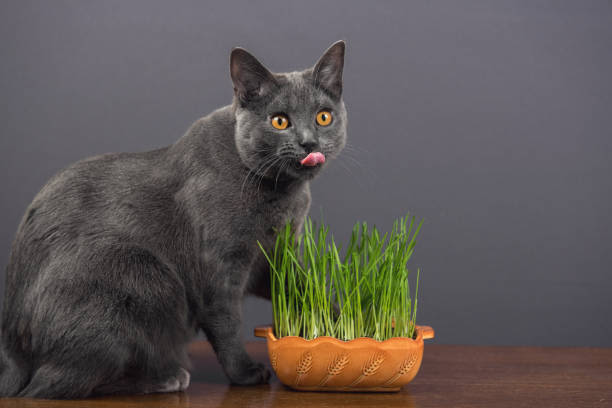
Why cats eat grass
Share
Cats are known to eat grass for various reasons, and it's a fairly common behavior among domestic cats. Here are some possible explanations for why cats eat grass:
1.Natural Instinct: Cats are descended from wild ancestors who were obligate carnivores. These ancestors consumed the entire prey, including the stomach contents, which often contained plant matter. Eating grass may be an instinctual behavior that helps cats fulfill their nutritional needs by providing certain essential nutrients or aiding in digestion.
2. Aiding Digestion: Cats have a specialized digestive system, and grass can act as a natural laxative. When cats ingest grass, it can help induce vomiting, which may be beneficial for removing hairballs or other indigestible material from their stomachs. This behavior is especially common among cats that groom themselves regularly and may ingest a significant amount of fur.
3. Dietary Supplementation: Grass contains essential nutrients such as folic acid, fiber, and certain vitamins that can be beneficial for cats. By eating grass, cats may be supplementing their diet with these nutrients, particularly if their regular cat food lacks them.
4. Sensory Stimulation: Chewing on grass can provide cats with sensory stimulation. The texture and taste of grass may be enjoyable for them and help alleviate boredom or provide a form of environmental enrichment.
5. Medical Reasons: In some cases, cats may eat grass as a response to an underlying medical issue. For example, if a cat is experiencing an upset stomach or gastrointestinal distress, they may instinctively seek out grass to induce vomiting or alleviate discomfort. If you notice excessive grass eating accompanied by other signs of illness, it's best to consult a veterinarian.



